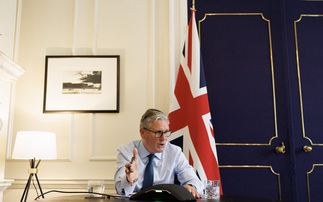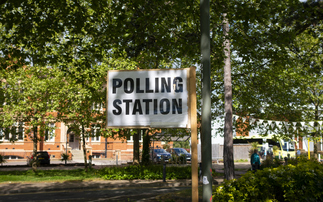Latest bilateral agreeement sees two nations work together to push for target ahead of Paris Climate Summit in December
Germany and Brazil yesterday pledged to work together to campaign for a decarbonised global economy by the end of the century, in the latest sign that momentum is gathering towards a global deal on tackling climate change in Paris at the end of this year.
German chancellor Angela Merkel and Brazilian president Dilma Roussef met yesterday to discuss mainly environmental issues, after which they released a joint statement expressing strong support for a successful outcome at the Paris talks in December.
The pact marks the first time the two countries have joined forces to call for nations to agree to aim for zero-carbon economies. The countries, which are the largest economies in Europe and Latin America, hope their declaration will boost support for a target ahead of the conference.
Jennifer Morgan, global director of the climate programme at the World Resources Institute, praised the announcement, saying it would send a "powerful signal" to other countries.
"It's telling that two countries with very different economies view a goal of decarbonising the global economy, in an equitable manner, as desirable and achievable," she said in a statement. "Their shared vision that the Paris agreement should ensure countries deliver more ambitious actions over time sends a powerful signal to the international community."
News agency Reuters reported that Germany has also committed to nearly €550m (£395m) of funding to support Brazil's efforts to reduce its carbon emissions. Merkel agreed to loan €525m to Brazil to aid attempts to reduce deforestation to zero by 2030 and develop clean energy programmes. Germany's Development Ministry will also donate €23m to introduce a rural land registry to monitor deforestation.
Bilateral agreements such as these appear to be playing an increasingly important role in the run-up to the Paris summit, underlining countries' determination to tackle climate change on a national and global scale.
Last month Brazil and the USA pledged to work together to deliver 20 per cent of their power from renewables and Brazil committed to restore up to 12 million hectares of rainforest.
However, Brazil has yet to submit its Intended Nationally Determined Contribution (INDC) to the UN, detailing its domestic efforts to tackle environmental degradation and its emissions, ahead of the Paris Summit. Germany, as part of the EU, has committed to reducing its emissions by at least 40 per cent from 1990 levels by 2030.
This article is part of the BusinessGreen Road to Paris Hub, hosted in association with PwC.










